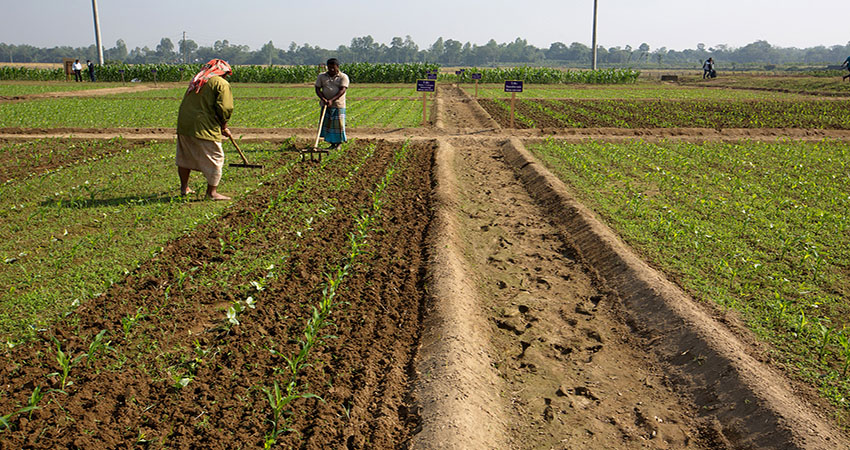Government subsidies transfer $620 billion per year to the farm sector worldwide. And only three farm economies – China, the European Union and the United States – spend more than half of that global subsidy amount.
The International Food Policy Research Institute (IFPRI) on Thursday called for an immediate repurposing of farm subsidies so that research and development (R&D) and innovations in agriculture are properly financed.
“Support policies based on subsidies and trade barriers are highly distortive to markets and are also regressive, as most support is provided to larger farmers. On balance, the incentives this support creates appear to increase greenhouse gas emissions that contribute to climate change,” the Washington-based global food policy think tank opined.
The IFPRI made a strong case that trade distorting subsidies were not the best of the answers to the climate change challenges that the global farm sector was facing today; rather, more urgently the investments must go to initiatives that could meet climate-related goals for food systems.
“Meeting climate-related goals for food systems could require as much as $350 billion per year by some estimates. Currently, available finance is grossly insufficient,” said IFPRI Director-General Dr Johan Swinnen.
The IFPRI officially launched one of its flagship annual publications – Global Food Policy Report 2022 – on Thursday where Swinnen was joined by a galaxy of economists, experts and other senior IFPRI officials to express a sense of urgency, as climate change poses new challenges to the agriculture sector.
ADVERTISEMENT
Swinnen, also a former lead economist at the World Bank and an ex-economic adviser to the European Commission, said repurposing government support to agricultural sectors, totalling over $600 billion per year worldwide, provided a major opportunity to do away with harmful subsidies and border measures, reorient finance towards R&D in green innovations, provide farmers and other producers with incentives and investment resources to adopt these innovations, and provide consumers with incentives and means to make sustainable and healthy food choices.
Better outcome if subsidies repurposed to finance R&D
IFPRI Director of Markets, Trade and Institutions Division Rob Vos said support provided to the farm sector in the form of subsidies involved budget allocations that could be reallocated.
“Better outcomes could be achieved if even a small portion of agricultural subsidies were repurposed into investments in R&D dedicated to productivity-enhancing and emissions-reducing technologies. Repurposing would create multiple wins – mitigating global climate change, reducing poverty, increasing food security and improving nutrition.”
Vos in association with his fellow colleague Will Martin and a Brookings Institution research fellow, Danielle Resnick, wrote the chapter of this year’s IFPRI report that deals with the issue of repurposing agricultural support to address climate change.
The IFPRI said: “Because current support policies are often politically popular and serve well-organized interests, reform will be difficult, especially since repurposing would need to be internationally coordinated for greatest effect.”
“Successful reform will require detailed analysis of winners and losers, and thoughtful strategies. Creating constituencies for reform at the national level and in international forums will be essential to build political consensus for concerted global action,” it added.
IFPRI researchers said support policies based on subsidies and trade barriers were highly distortive to markets and were also regressive, as most support was provided to larger farmers. On balance, the incentives this support created appeared to increase greenhouse gas emissions that contributed to climate change, they added.
The 2022 Global Food Policy Report highlights the urgency of accelerating innovation, reforming policies, resetting market incentives, and increasing financing for sustainable food systems transformation. It sets forth a broad range of policy options for accelerated action by policymakers as well as international forums for policy and investment decision-making.
Eleven thematic chapters look at how policies can support the development and adoption of “disruptive” technologies by creating an enabling environment for climate change-related financing, innovation uptake, and integrated governance of natural resources.
The chapters also examine the impacts of climate change and related policies on the most vulnerable, considering how to promote healthy, sustainable diets, and increase benefits for all from food systems.
Six regional chapters discuss the diverse impacts of climate change in different parts of the world and identify potential responses that can be made in the short and medium terms in national and regional food systems.
Source: Dhaka Tribune
IFPRI calls for repurposing global farm subsidies



















